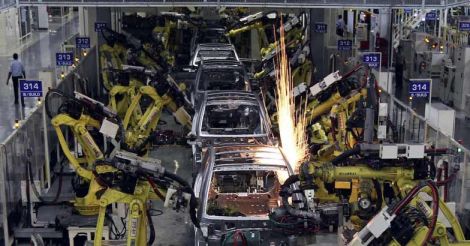In the relationship of an investor and a licensing official, who is the master? In the Indian context surely the official is more than a master. He is a demi god. Narendra Modi, while he was Chief Minister of Gujarat, reversed the pattern,with officials going to investors seeking investment. He got the results too with Gujarat topping the list of Indian states getting both foreign and domestic investments.
Singapore Prime Minister Lee Hsein Loong had this to say when he visited India a couple of years back: Investors into India rely on good governance, a predictable regulatory regime, and hassle-free rules-based business environment. This is because they are making long-term commitments, large sums of money, long gestation and operation periods and needs consistency.
Singapore Prime Minister has a right to say it, as Singapore happens to be the second largest country investing in India. Annual FDI flow from there is close to $15 billion. Indians too invest in Singapore, the total amount being $25 billion. Singapore accounts for 10 per cent of total FDI flow in to India till an year ago.
Lee Hsein Loong is the eldest son of Lee kuan Yew, former Singapore Prime Minister and a great administrator. Singapore provides consistency in policies and administration, the reasons which make that country getting investment from all over the world. But here in Kerala, it's an entirely different story.
Try to apply for VAT registration through online in Kerala. Filling a printed form used to take 5 minutes, while filling the online form may take hours. Once filled, registration can't be obtained online. You have to get a print-out and take it to sale tax office. It becomes a file and then it's business as usual. It moves through different sections, and you have to grease many palms to get it approved. In effect, online is just a pompous addition for the bureaucrats to brag about.
Try to register a name for your company. You will have to answer so many questions and go through red tape. In case you manage to register a name and get an import license for your new company from the centre, then to get those things you have shipped, outside the port, you need a VAT registration. To get it, you have to furnish the details of wealth of all company directors. The Babus in sale tax office say that it is to ensure that, if in future this company evades taxes, then the directors' wealth can be attached. By the time you obtain every permit, your file in the chartered accountant's office would be three inch thick.
The whole system conjures up all kinds of malpractices and evasions that may occur, and take measures to outsmart them. They look at entrepreneurs as potential crooks. Flying squad vehicles with wire-less sets, roam around to make a catch. At the slightest hint of a law violation, they charge a hefty penalty.
It's a Master-servant relationship. Unfortunately, the bureaucrat is the master and investor the servant. Unless this relationship reverses, large-scale investment is not possible. The feudal culture has to make way to a professional relationship. It's precisely the present Indian system, that prevents flow of capital to infrastructure and manufacturing, in- spite of the potential for investment in these sectors being very high.
But Indian corporates have learnt the ways to circumvent the system and use it to their advantage. They know, everyone has a price. They know how to work the system to their advantage. For that they hire retired bureaucrats themselves. Even retired department heads, move around offices they once ruled, to get things done for their new boss, who now happens to be a big-time business man.
Last post.-Take a look at the real-estate companies. Most of them employ retired officials from revenue department, or civic bodies. Even district magistrates or district collectors are employed post-retirement. Bureaucrats sure know how to bend the system, ain't so?

























































































Disclaimer
The comments posted here/below/in the given space are not on behalf of Manorama. The person posting the comment will be in sole ownership of its responsibility. According to the central government's IT rules, obscene or offensive statement made against a person, religion, community or nation is a punishable offense, and legal action would be taken against people who indulge in such activities.